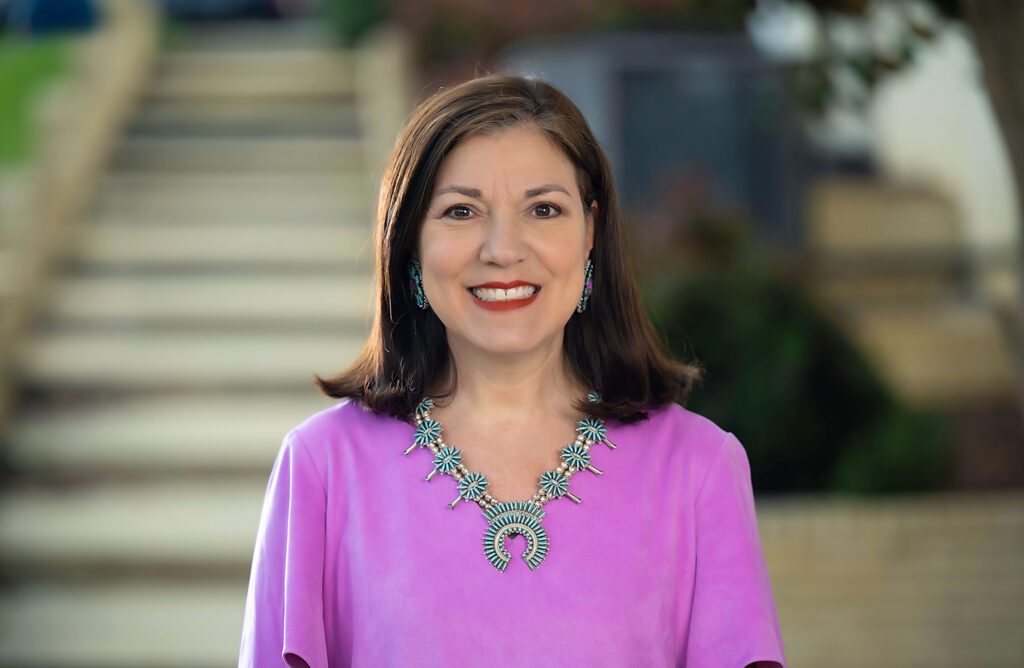
Even though she’s only been on the job a little over two years, Pamela Brewington Cashwell ’89, ’92 (JD) is very familiar with her walk into the North Carolina Department of Administration (NCDOA).
She remembers walking into the same department with her mother, Gertie Brewington, who worked there for over a decade as a project manager of the North Carolina Commission of Indian Affairs — a division that provides resources and support to state-recognized tribes.
As a young girl, Cashwell thought that the state government was run through the Administration Building and the North Carolina State Capitol; those were the two buildings she frequented with her mother.
Beyond becoming familiar with the government district in Raleigh, seeing the impact of her mother’s work in public service left an impression.
“I saw the impact that state employees and state agencies have on communities in North Carolina,” said Cashwell, “and so I knew early on that I wanted to also work in public service.”
Today, Cashwell serves as the secretary of the North Carolina Department of Administration (NCDOA). She oversees the business management side of the state’s government, supervising government operations and services that allow agencies to run day-to-day functions. The NCDOA also manages the state’s advocacy programs that serve a diverse group of North Carolinians, including historically underutilized businesses, women, youth and tribal communities.
Cashwell is the first American Indian woman in North Carolina history to serve as a Cabinet secretary and was named a Legal Legend of Color honoree by the North Carolina Bar Association on June 18, 2023.
Talking with Cashwell paints a rich picture of the amount of work that comes out of her department. From the painstaking care that goes into state asset management, to creating opportunities for small businesses to contract with the state, to managing grants for shelters for domestic abuse survivors — the jurisdiction and impact of the NCDOA requires a leader that can handle it all.
Cashwell credits many of her leadership abilities to her Carolina education. She is a double Tar Heel — she earned an undergraduate degree in economics in 1989 and her juris doctorate in 1992. Her decision to attend Carolina the first time was a mix of being a local and watching Michael Jordan’s 1982 championship-winning basket while in high school. Cashwell said that returning for law school was a no-brainer.
While attending Carolina, Cashwell was a trailblazing member of the Carolina Indian Circle. Founded in 1974, the Carolina Indian Circle is a student group of Native Americans that uplifts and centers Indigenous voices on UNC’s campus.
Thirty six years ago, Cashwell helped plan the first annual powwow on Ehringhaus Field. Now a hallmark annual event, the Carolina Indian Circle powwow provides a space for Native dance, arts and crafts, and food on campus.
“Every time I pass Ehringhaus now, I see that first powwow happening on that field,” she said. “It just was a great, great day.”
As an alumna, Cashwell remains connected through alumni committees and donates her time, talent and treasure.
“I definitely attribute a lot of my leadership abilities to both the Carolina Indian Circle and my law school experience,” she said. “Those two entities in particular had an impact on me being where I am now. So it’s important to me to give something back.”
Cashwell has given her time to serve on some of Carolina’s alumni boards — keeping in touch with the University and steering it towards a bright future. She previously served on the UNC Board of Visitors and the Carolina Indian Circle Board, and she now serves on the Alumni Committee for Racial Equity and Diversity (ACRED) and chairs the American Indian subcommittee.
“What I really like about ACRED is that it brings together a very diverse group of people who have this common thread of our connection to Carolina,” she said. “Everybody has the same drive toward continuing to make Carolina a place that is welcoming to a diverse community.”
“Carolina is so important to the fabric of North Carolina in terms of creating our future leaders, conducting amazing research, helping our environment and improving our health. We want to make it a community where everyone can thrive”
Cashwell is passionate about attracting talent to Carolina, and she wants ACRED to be a tool to bring top students to UNC-Chapel Hill.
“Top-tier minority students are being recruited by other universities; they’re being heavily recruited,” she remarked. “ACRED can have a role in trying to bring some of those top tier minority students to the University, by ensuring they understand we value them. That is more important than ever.”
Cashwell advises members of the recently-graduated class of 2023 who want to make an impact to consider working for the state of North Carolina.
“State government service is an awesome way to make an impact on your community and state. It is so highly gratifying. It’s an amazing way to be involved in the success of our state and to make North Carolina a better place to live and work and grow. For me, there’s no higher calling.”

